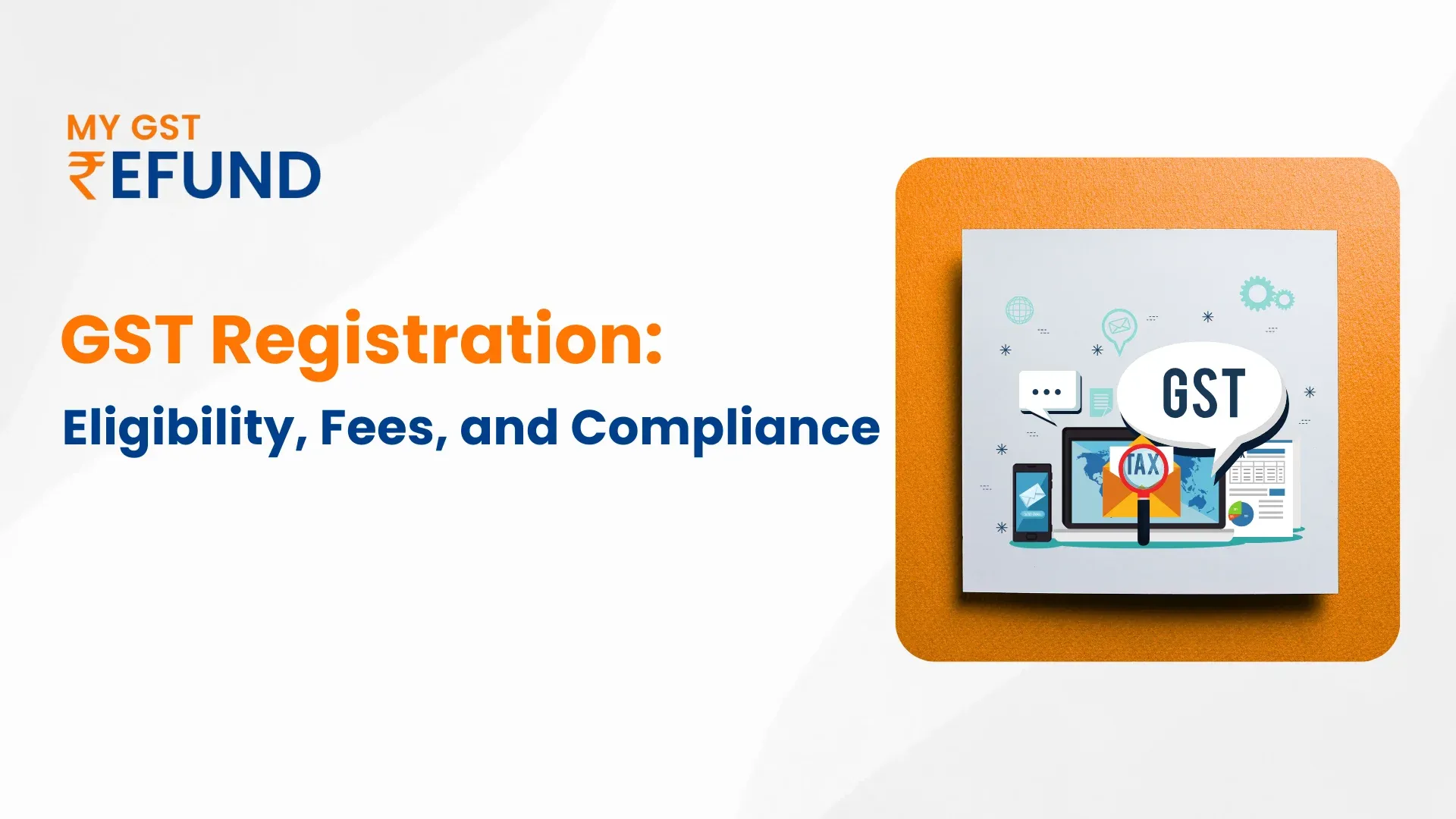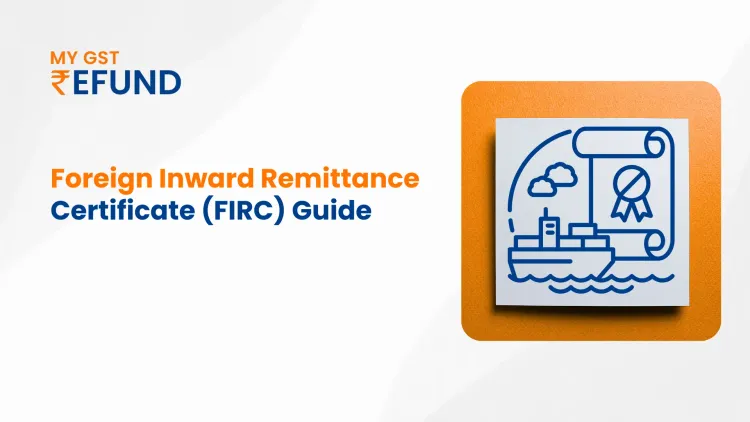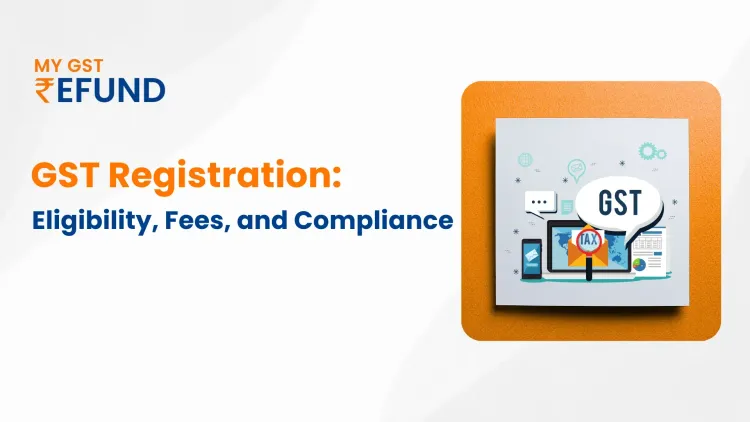Complete Guide to GST Registration: Eligibility, Fees, and Compliance
India implemented the comprehensive indirect tax called Goods and Services Tax (GST) to replace all multiple indirect taxes, including VAT, excise duty, and service tax, on July 1st, 2017. The destination-based Goods and Services Tax applies to all goods and services that are supplied across India. To maintain legal status and gain input tax benefits, all businesses that surpass their designated turnover requirements need to register for GST.
Businesses that register for GST gain legal authority to charge customers for tax while enjoying benefits from the input tax credit (ITC) system. The registration process exists only online, although businesses frequently hire professionals to help with documentation and compliance assurance. This article covers the eligibility, GST registration process, fees, compliance requirements, and penalties for non-compliance.
Who Must Register for GST?
Threshold Limits for GST Registration
GST registration is mandatory if a business’s annual turnover crosses the prescribed threshold:
1. For Goods Suppliers:
- ₹40 lakh in the general category states.
- The requirement for registration in Jammu & Kashmir, Himachal Pradesh, Uttarakhand, and northeastern states falls under ₹20 lakh.
2. For Service Providers:
- ₹20 lakh in the general category states.
- ₹10 lakh in special category states.
Apply Now for Hassle-Free GST Registration with Us!
Who Needs to Register for GST Regardless of Turnover?
Certain businesses must register for GST even if their turnover is below the threshold:
Interstate Suppliers: Organisations that deliver goods and services to customers in different states fall within this category.
E-commerce sellers: The group includes people along with corporations conducting online business through Meesho, Amazon, and Flipkart.
Casual Taxable Persons: Businesses with no fixed place of business, such as seasonal traders.
Non-Resident Taxable Persons: The provision applies to international enterprises that conduct business by supplying goods or services in India.
Reverse Charge Mechanism (RCM) Entities: Businesses must pay tax according to the rules of the Reverse Charge Mechanism.
Input Service Distributors (ISD): Companies benefit from input tax credit distribution in their different branches.
Online Information and Database Access (OIDAR) Service Providers: Business Laws: Those previously registered under VAT, Excise, or Service Tax.
Read More: Documents Checklist Required for GST Registration in India
GST Registration Process
The GST registration process is fully online and typically takes 2 to 6 working days.
Steps to Register for GST
- Users should access the GST Portal at "services.gst.gov.in", then choose "New Registration" from the list.
- Users need to provide PAN information along with email and mobile number, and the business operational state.
- Review and confirm your application through the OTP that arrives at your email and phone number.
- Enter data into the GST REG-01 form by providing business information with banking details and mandatory documentation.
- Submits required documents to the system that include a PAN, proof of business address, and bank details.
- Users must submit their application and check its status through the Temporary Reference Number system.
- The GST Identification Number (GSTIN) with its 15 digits comes after successful verification of the application.
Read More: How to Check GST Registration Application Status: A Complete Guide
Documents Required for GST Registration
1. PAN card of the business owner or entity.
2. Proof of Business Address (Electricity Bill, Rent Agreement, or Property Tax Receipt).
3. Bank Account Details (Cancelled Cheque or Bank Statement).
4. Identity & Address Proof of Proprietor/Partners/Directors (Aadhaar, Passport, or Voter ID).
5. Certificate of Incorporation (for companies and LLPs).
GST Registration Fees
- No government fees are required for GST registration via the official GST portal.
- However, businesses may incur professional charges if they hire tax consultants or CA services for documentation and filing.
Professional Charges for GST Registration
While the government does not charge for GST registration, many businesses opt for professional assistance due to the complexity of documentation and compliance. Professional service charges vary based on the type of business entity and additional compliance services required.
GST Registration Fees for Different Entity Types
1. Sole Proprietorship & Individual Businesses
- Generally, low fees, because the registration process is simple.
2. Partnership Firms
- Costs depend on the number of partners and the documentation complexity.
3. Private Limited Companies & LLPs
- Higher professional charges due to legal and regulatory compliance requirements.
4. E-commerce Sellers
- May require additional compliance, increasing costs.
GST Renewal Fees
There are no separate renewal fees for GST registration.
- Businesses must file GST returns regularly to maintain an active GSTIN.
- If a business fails to comply with GST regulations, the GSTIN may be canceled, requiring re-registration.
Read More: Top 5 Benefits of GST Registration for Startups
Penalties for Non-Compliance
Penalties arise when businesses fail to register for GST or supply incorrect registration details. A business faces a minimum penalty amounting to ₹10,000 whenever it fails to register on time, because of which it receives a late registration penalty of 10% of the required tax amount. Business compliance with tax regulations, as well as prevention of unnecessary financial burdens, is achieved through this process.
Businesses will encounter rejections alongside penalties at least amounting to ₹10,000 when providing incorrect details in their GST registration process. Successful business operations depend on accurate information delivery to avoid legal penalties as well as procedural delays. All discrepancies found in registration details need immediate corrections to prevent additional difficulties from arising.
Failure to file GST returns produces penalties that become applicable to businesses. Normal taxpayers must pay ₹50 daily GST, which is distributed equally to ₹25 CGST and ₹25 SGST. The penalty for NIL returns is ₹20 per day, yet provides equal distribution of ₹10 for each tax to CGST and SGST. Business compliance and avoidance of financial penalties are supported by regular return-filing practices.
Importance of Understanding GST Registration Fees
1. Budget Planning: Budgetary planning must include both GST registration expenses together with compliance expenses.
2. Legal Compliance: A business that registers on time will prevent both monetary penalties and any legal difficulties.
3. Financial Forecasting: Your financial plans will improve when you understand the costs linked to using GST.
4. Input Tax Credit Benefits: Registered businesses are the only entities that can use input tax credits to decrease their tax obligations.
5. Business Credibility: Transactional partnerships increase when customers and suppliers see that businesses possess a valid GSTIN.
Read More: Understanding the Goods and Services Tax Network (GSTN)
Conclusion
GST registration service on the government portal comes with no cost, but businesses will likely need to pay professionals for handling documentation and complying with GST requirements. A business that registers for GST on time protects itself from legal problems and receives tax benefits through input credits while staying free from government penalties. A business that wants to stay active must always keep its GST filing obligations in compliance.
A business will operate efficiently within the tax framework when it fully grasps the factors related to GST registration, including costs and eligibility requirements, and compliance measures.
Frequently Asked Questions
What is the cost of a GST licence?
Users can obtain a GST licence at no cost when they file their applications through the official GST portal platform. Businesses looking for a consultant or chartered accountant's help for GST implementation should expect to pay fees based on their business needs and the service provider's billing rates.
Is the GST certificate free?
After successful registration, the GST certificate becomes available to you at no cost. The issuance of the licence does not require any government fees. A service fee may need to be paid when hiring professionals to accomplish registration.
Is GST free to apply?
You can obtain GST registration at no cost if you conduct it by yourself through the official GST portal. The government does not demand payment for GST certificate applications. The process will generate costs only when you need professional help for management purposes.
Related Posts








